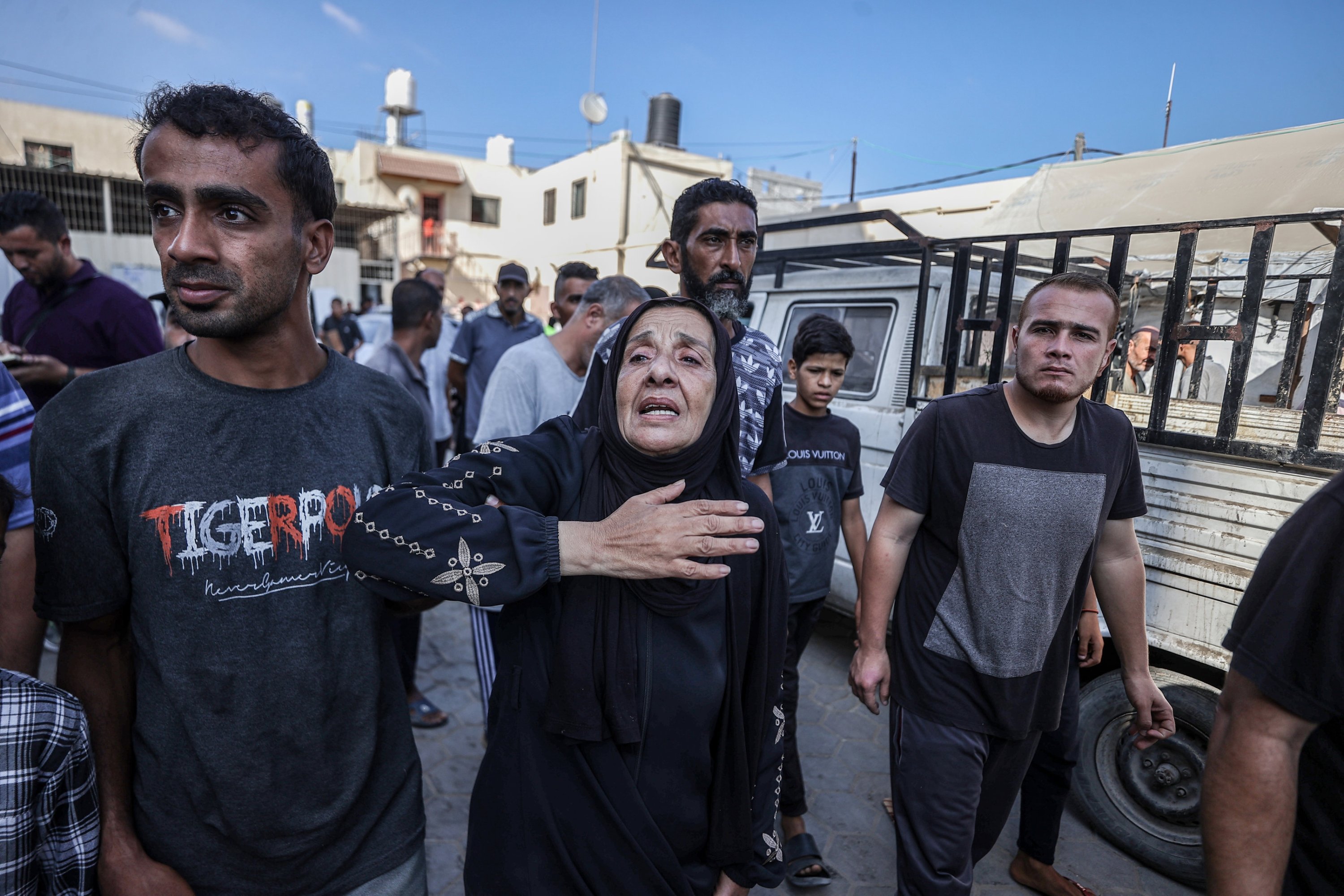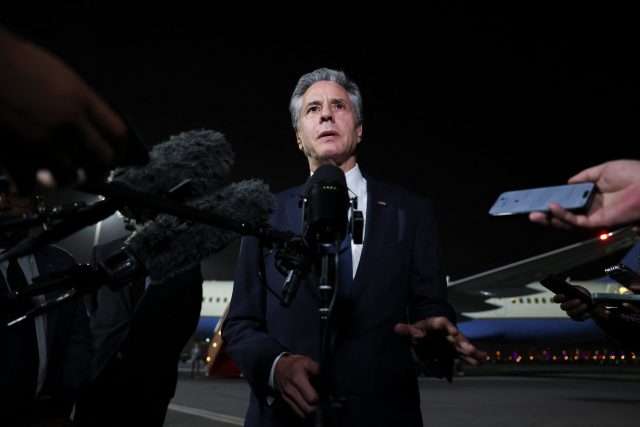A cease-fire in Israel’s genocidal war on Gaza remained out of reach Wednesday after top U.S. diplomat Antony Blinken headed home without an Israel-Hamas deal.
Blinken warned that his plan may be the last chance to avert a broader regional war. He urged both parties to accept a U.S.-backed truce proposal urgently and entered into a public spat with Israel over its future presence in the Gaza Strip.
“Time is of the essence,” Blinken said after stops in key Arab mediators Qatar and Egypt as well as Israel on his ninth tour of the region aiming to halt the more than 10-month conflict.
“With every passing day, more bad things can happen to more good people who don’t deserve it,” he said before flying out of Doha.
“This needs to get done, and it needs to get done in the days ahead, and we will do everything possible to get it across the finish line,” he said of the truce proposal.
The United States has presented ideas to bridge gaps and, through Qatar and Egypt, pressed Hamas to return to talks this week in Cairo.
But a day after Blinken said U.S. ally Israel was on board, Prime Minister Benjamin Netanyahu was quoted by Israeli media as disagreeing on a key sticking point.
Netanyahu insisted Israel maintain control of the Philadelphi Corridor, the border between Gaza and Egypt that Israeli forces seized from Hamas, whom Israel accuses of using secret tunnels to bring in weapons.
Sticking point
Blinken said Israel had already agreed on the “schedule and location” of troop withdrawals from Gaza.
Since the conflict began, it was made “very clear that the United States does not accept any long-term occupation of Gaza by Israel,” Blinken said when asked about Netanyahu’s remarks.
A senior U.S. official, speaking on condition of anonymity to discuss sensitive diplomacy, called Netanyahu’s “maximalist statements” unhelpful for reaching a truce.
Blinken acknowledged differences and called for “maximum flexibility” from both Israel and Hamas.
Egypt, the first Arab nation to make peace with Israel, has been infuriated by the border takeover.
Blinken has sought to entice Netanyahu to compromise by offering Israel the prospect of greater normalization with the Arab world, including Saudi Arabia, guardian of Islam’s two holiest sites.
Egyptian President Abdel-Fattah el-Sissi, meeting Blinken in el Alamein, told him “the time has come to end the ongoing war,” a statement said.
Blinken then traveled to Doha to meet with Emir Sheikh Tamim bin Hamad Al Thani, but a U.S. official said the Qatari ruler was feeling unwell and they would speak by phone.
Ongoing violence

The was triggered by the Oct. 7 Hamas incursion of Israel, which has responded with a genocidal war.
The Palestinian resistance group said it was “keen to reach a cease-fire” but protested “new conditions” from Israel in the latest U.S. proposal.
Airstrikes occurred across Gaza overnight, AFP reporters, first responders and witnesses said. At least three people were killed, the civil defense agency said.
The Israeli military said it struck about 30 targets throughout Gaza and that troops “eliminated dozens” of resistance members.
Further escalating tensions, an Israeli strike in Lebanon’s southern city of Sidon killed a Fatah official, a senior member of the Palestinian group and a security source said.
The killing of Khalil Makdah marked the first such attack reported on Fatah, a rival to Hamas since the Gaza war broke out and could further complicate cease-fire talks.
Lebanon’s Health Ministry said earlier Israeli strikes in the country’s east killed one person and wounded 20, hours after four were killed in the south.
Cross-border skirmishes have taken place almost daily between Israel and Lebanon’s Hezbollah but fears of a greater crisis soared when Hamas’s political leader, Ismail Haniyeh, was killed on a visit to Tehran on July 31.
Iran has vowed retaliation, blaming Israel for the assassination, but has held off so far, with the United States sending additional forces and warning a wider war could destroy prospects for a Gaza cease-fire.
Elsewhere in the region, a merchant vessel was struck by three projectiles off Yemen after exchanging fire with two boats, the British maritime security agency UKMTO said.
There was no immediate claim for the attack, but it comes as Yemen’s Iran-backed Huthi movement keeps up a campaign against international shipping that it says is in support of Gaza.
Hostage appeal
Israel and Hamas have blamed each other for delays in agreeing a deal to end fighting, free Israeli hostages and allow vital humanitarian aid into Gaza.
Netanyahu has faced public protests in Israel urging him to accept a truce, which would bring back hostages whose plight has plagued Israelis.
The Israeli military said Tuesday it had retrieved the bodies of six hostages from tunnels in southern Gaza, some of whom were killed in Israeli military operations.
The Oct. 7 incursion caused the deaths of 1,199 people in Israel, according to an AFP tally based on Israeli official figures.
Out of 251 people taken hostage that day, 105 are still being held hostage inside the Gaza Strip, including 34 the military says are dead.
Israel’s genocidal war, in response, has killed 40,223 Palestinians in Gaza, mostly women and children, according to the territory’s Health Ministry.




